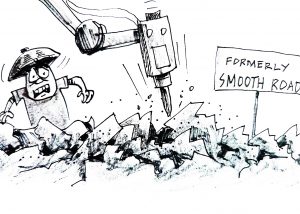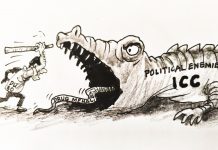This has become a common practice in Region 8, particularly in the province of Samar: roads that are still in good condition, with smooth asphalt overlays, are being recklessly destroyed by heavy equipment, pulverizing perfectly serviceable infrastructure. Meanwhile, the heavily damaged roads, marred by deep crevices and dangerous cracks, are being blatantly ignored. This grotesque inversion of priorities raises an unavoidable question: what kind of practice is this?
This is not merely a matter of incompetence or poor planning; it reeks of systemic corruption. Destroying roads that are in good condition to justify new construction projects is a blatant ploy to secure additional budgets. These budgets, in turn, offer ample opportunities for unscrupulous officials to siphon off funds for personal gain. This vicious cycle wastes public money and subjects the populace to unnecessary inconvenience and danger.
The logical and ethical approach is to prioritize repairing the damaged roads, ensuring safety and mobility for all. Instead, the current practice suggests a deliberate, nefarious strategy designed to perpetuate a continuous flow of funds into the pockets of those in power. This form of corruption is particularly insidious because it masquerades as a development while actively sabotaging progress and eroding the very infrastructure it purports to improve.
Furthermore, this practice has far-reaching consequences beyond immediate financial waste and public inconvenience. It creates a culture of cynicism and helplessness among citizens, who see their needs and safety blatantly disregarded. When people witness such blatant malfeasance, it diminishes their faith in public institutions and discourages civic engagement. The long-term impact of this erosion of trust is incalculable, leading to apathy and disengagement that weaken the fabric of society.
This malpractice must be exposed and condemned in the strongest possible terms. Transparency in allocating and using public funds must be enforced, and those responsible for these nefarious actions should be held accountable. Only through rigorous oversight and a commitment to genuine public service can the integrity of infrastructure projects be restored. The people of Samar and Region 8 deserve roads that are safe, functional, and built with their best interests at heart—not the wallets of corrupt officials.




